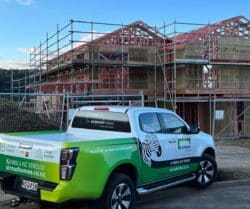Advantages of a New vs Old Investment Home
Advantages of a New vs Old Investment Home
Advantages of Building a New Home for Rental
vs
Purchasing an Older Existing House
From an investor’s perspective, building a new home for rental purposes offers several advantages over purchasing an older existing house. These advantages span financial benefits, maintenance considerations, and compliance with regulations.
Financial Advantages
1. Lower Initial Deposit Requirements
New builds typically require a smaller deposit compared to older properties. For example, in New Zealand, a new build might require a 20% deposit, whereas an older property might require a 35% deposit. This means investors can enter the market with less upfront capital.
2. Tax Benefits
New build properties often come with significant tax advantages. For instance, in New Zealand, new builds are exempt from certain interest deductibility rules for 20 years, allowing investors to deduct mortgage interest from their taxable income. This can result in substantial tax savings.
3. Higher Return on Investment (ROI)
Because new builds require less initial capital, the return on investment can be higher. For example, if both a new and an existing property double in value over 15 years, the new build would yield a higher percentage return due to the lower initial investment required.
Maintenance and Compliance
1. Lower Maintenance Costs
New homes are built to modern standards, which means they typically require less maintenance in the early years. They are less likely to need major repairs such as roof replacements or plumbing updates, which are common with older properties.
2. Energy Efficiency
Newer properties are generally more energy-efficient, which can be a selling point for tenants and can reduce utility costs. Features like better insulation, modern heating systems, and energy-efficient appliances are standard in new builds.
3. Compliance with Regulations
New builds are more likely to comply with current building codes and healthy home standards, reducing the risk and cost of bringing an older property up to code. This compliance can save time and money and make the property more attractive to tenants.
Tenant Appeal and Longevity
1. Modern Amenities and Layouts
New homes often come with modern amenities and more desirable layouts, which can attract higher-quality tenants willing to pay a premium for these features.
2. Longer Lease Terms
Tenants are often more willing to sign longer leases for newer properties, providing more stable and predictable rental income for investors.
3. Less Vacancy
Due to the appeal of new homes, they may experience lower vacancy rates compared to older properties, ensuring a more consistent rental income.
Challenges and Considerations
While there are numerous advantages, investors should also be aware of potential challenges:
1. Higher Initial Costs
Building a new home can be more expensive upfront compared to purchasing an older home, especially when factoring in land acquisition and construction costs.
2. Construction Timeframes
The process of building a new home takes time from getting the building contract with plans, to the builder obtaining council consent and finishing the home. The construction phase could be from 6-12 months depending on the scale of the project and scope of works required meaning there is an inevitable delay with rental income generation.
3. Property Market Fluctuations
Residential property values have fluctuated and may continue to fluctuate depending on different factors; however, the risk of property value fluctuations can be balanced against rental demand, and growth in the chosen area for investment. Statistically property values and returns on new builds have remained higher across most areas and with careful consideration the risk of devaluation can be minimised.
In summary, building a new home for rental purposes offers significant advantages in terms of financial benefits, lower maintenance costs, compliance with regulations, and tenant appeal. However, investors should weigh these benefits against the higher initial costs and potential construction delays.







